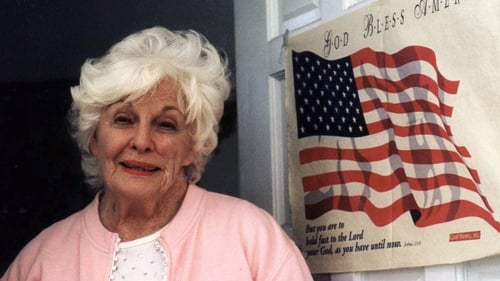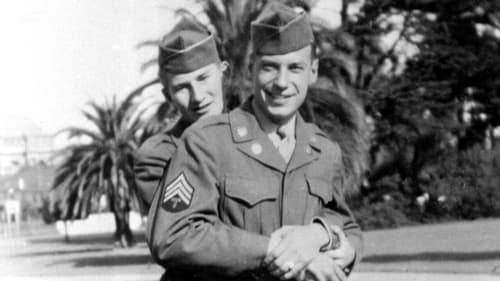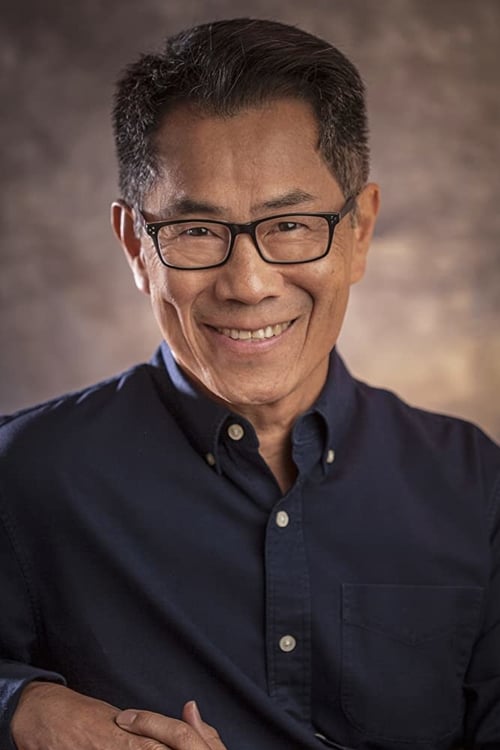Arthur Dong
History
Arthur Dong is an American filmmaker and author whose work centers on Asia America and anti-gay prejudice. He received a BA from San Francisco State University and a Directing Fellow Certificate at the American Film Institute Center for Advanced Film Studies.

Editor
When Dr. Haing S. Ngor was forced into labor camps by the Khmer Rouge, little did he know he would escape years of torture and recreate his experiences in a film that would win him an Academy Award®. "The Killing Fields of Dr. Haing S. Ngor" tells the dramatic story about arguably the most recognizable survivor of the Cambodian genocide, a man who became a worldwide ambassador for justice in his homeland, only to be murdered in a Los Angeles Chinatown alley - a case still muddled with conspiracy theories. Through an inspired blend of original animation and rare archival material - anchored by Ngor's richly layered autobiography - the years encapsulating the Khmer Rouge's tyrannical rule over Cambodia are experienced though a politically charged transnational journey of loss and reconciliation.

Director of Photography
When Dr. Haing S. Ngor was forced into labor camps by the Khmer Rouge, little did he know he would escape years of torture and recreate his experiences in a film that would win him an Academy Award®. "The Killing Fields of Dr. Haing S. Ngor" tells the dramatic story about arguably the most recognizable survivor of the Cambodian genocide, a man who became a worldwide ambassador for justice in his homeland, only to be murdered in a Los Angeles Chinatown alley - a case still muddled with conspiracy theories. Through an inspired blend of original animation and rare archival material - anchored by Ngor's richly layered autobiography - the years encapsulating the Khmer Rouge's tyrannical rule over Cambodia are experienced though a politically charged transnational journey of loss and reconciliation.

Producer
When Dr. Haing S. Ngor was forced into labor camps by the Khmer Rouge, little did he know he would escape years of torture and recreate his experiences in a film that would win him an Academy Award®. "The Killing Fields of Dr. Haing S. Ngor" tells the dramatic story about arguably the most recognizable survivor of the Cambodian genocide, a man who became a worldwide ambassador for justice in his homeland, only to be murdered in a Los Angeles Chinatown alley - a case still muddled with conspiracy theories. Through an inspired blend of original animation and rare archival material - anchored by Ngor's richly layered autobiography - the years encapsulating the Khmer Rouge's tyrannical rule over Cambodia are experienced though a politically charged transnational journey of loss and reconciliation.

Writer
When Dr. Haing S. Ngor was forced into labor camps by the Khmer Rouge, little did he know he would escape years of torture and recreate his experiences in a film that would win him an Academy Award®. "The Killing Fields of Dr. Haing S. Ngor" tells the dramatic story about arguably the most recognizable survivor of the Cambodian genocide, a man who became a worldwide ambassador for justice in his homeland, only to be murdered in a Los Angeles Chinatown alley - a case still muddled with conspiracy theories. Through an inspired blend of original animation and rare archival material - anchored by Ngor's richly layered autobiography - the years encapsulating the Khmer Rouge's tyrannical rule over Cambodia are experienced though a politically charged transnational journey of loss and reconciliation.

Director
When Dr. Haing S. Ngor was forced into labor camps by the Khmer Rouge, little did he know he would escape years of torture and recreate his experiences in a film that would win him an Academy Award®. "The Killing Fields of Dr. Haing S. Ngor" tells the dramatic story about arguably the most recognizable survivor of the Cambodian genocide, a man who became a worldwide ambassador for justice in his homeland, only to be murdered in a Los Angeles Chinatown alley - a case still muddled with conspiracy theories. Through an inspired blend of original animation and rare archival material - anchored by Ngor's richly layered autobiography - the years encapsulating the Khmer Rouge's tyrannical rule over Cambodia are experienced though a politically charged transnational journey of loss and reconciliation.

Editor
Hollywood Chinese is a captivating look at cinema history through the lens of the Chinese American experience. Directed by triple Sundance award-winning filmmaker, Arthur Dong, this documentary is a voyage through a century of cinematic delights, intrigues and treasures. It weaves together a wondrous portrait of actors, directors, writers, and movie icons who have defined American feature films, from the silent era to the current new wave of Asian American cinema. At once entertaining and enlightening, Hollywood Chinese reveals long-untold stories behind the Asian faces that have graced the silver screen, and weaves a rich and complicated tapestry, one marked by unforgettable performances and groundbreaking films, but also by a tangled history of race and representation.

Producer
Hollywood Chinese is a captivating look at cinema history through the lens of the Chinese American experience. Directed by triple Sundance award-winning filmmaker, Arthur Dong, this documentary is a voyage through a century of cinematic delights, intrigues and treasures. It weaves together a wondrous portrait of actors, directors, writers, and movie icons who have defined American feature films, from the silent era to the current new wave of Asian American cinema. At once entertaining and enlightening, Hollywood Chinese reveals long-untold stories behind the Asian faces that have graced the silver screen, and weaves a rich and complicated tapestry, one marked by unforgettable performances and groundbreaking films, but also by a tangled history of race and representation.

Writer
Hollywood Chinese is a captivating look at cinema history through the lens of the Chinese American experience. Directed by triple Sundance award-winning filmmaker, Arthur Dong, this documentary is a voyage through a century of cinematic delights, intrigues and treasures. It weaves together a wondrous portrait of actors, directors, writers, and movie icons who have defined American feature films, from the silent era to the current new wave of Asian American cinema. At once entertaining and enlightening, Hollywood Chinese reveals long-untold stories behind the Asian faces that have graced the silver screen, and weaves a rich and complicated tapestry, one marked by unforgettable performances and groundbreaking films, but also by a tangled history of race and representation.

Director
Hollywood Chinese is a captivating look at cinema history through the lens of the Chinese American experience. Directed by triple Sundance award-winning filmmaker, Arthur Dong, this documentary is a voyage through a century of cinematic delights, intrigues and treasures. It weaves together a wondrous portrait of actors, directors, writers, and movie icons who have defined American feature films, from the silent era to the current new wave of Asian American cinema. At once entertaining and enlightening, Hollywood Chinese reveals long-untold stories behind the Asian faces that have graced the silver screen, and weaves a rich and complicated tapestry, one marked by unforgettable performances and groundbreaking films, but also by a tangled history of race and representation.

Self
A chronological look at films by, for, or about gays and lesbians in the United States, from 1947 to 2005, Kenneth Anger's "Fireworks" to "Brokeback Mountain". Talking heads, anchored by critic and scholar B. Ruby Rich, are interspersed with an advancing timeline and with clips from two dozen films. The narrative groups the pictures around various firsts, movements, and triumphs: experimental films, indie films, sex on screen, outlaw culture and bad guys, lesbian lovers, films about AIDS and dying, emergence of romantic comedy, transgender films, films about diversity and various cultures, documentaries and then mainstream Hollywood drama. What might come next?

Self (voice)
With a rare gift for unflinching impartiality, director Arthur Dong delves into the lives and attitudes of fundamentalist families who actively oppose homosexuality, despite having gay offspring themselves.

Editor
With a rare gift for unflinching impartiality, director Arthur Dong delves into the lives and attitudes of fundamentalist families who actively oppose homosexuality, despite having gay offspring themselves.

Director of Photography
With a rare gift for unflinching impartiality, director Arthur Dong delves into the lives and attitudes of fundamentalist families who actively oppose homosexuality, despite having gay offspring themselves.

Producer
With a rare gift for unflinching impartiality, director Arthur Dong delves into the lives and attitudes of fundamentalist families who actively oppose homosexuality, despite having gay offspring themselves.

Writer
With a rare gift for unflinching impartiality, director Arthur Dong delves into the lives and attitudes of fundamentalist families who actively oppose homosexuality, despite having gay offspring themselves.

Director
With a rare gift for unflinching impartiality, director Arthur Dong delves into the lives and attitudes of fundamentalist families who actively oppose homosexuality, despite having gay offspring themselves.

Self (voice)
A riveting journey into the minds of men whose contempt for homosexuals led them to murder. Attacked in 1977 by gay bashers on the streets of San Francisco, filmmaker Arthur Dong confronts murderers of gay men face-to-face in his film. He asks them directly: “Why did you do it?”

Editor
A riveting journey into the minds of men whose contempt for homosexuals led them to murder. Attacked in 1977 by gay bashers on the streets of San Francisco, filmmaker Arthur Dong confronts murderers of gay men face-to-face in his film. He asks them directly: “Why did you do it?”

Writer
A riveting journey into the minds of men whose contempt for homosexuals led them to murder. Attacked in 1977 by gay bashers on the streets of San Francisco, filmmaker Arthur Dong confronts murderers of gay men face-to-face in his film. He asks them directly: “Why did you do it?”

Director
A riveting journey into the minds of men whose contempt for homosexuals led them to murder. Attacked in 1977 by gay bashers on the streets of San Francisco, filmmaker Arthur Dong confronts murderers of gay men face-to-face in his film. He asks them directly: “Why did you do it?”

Director
This unique four-part series presents a multi-faceted history of the gay and lesbian civil rights movement, from Stonewall to the present.

Producer
A historical account of military policy regarding homosexuality during World War II. The documentary includes interviews with several homosexual WWII veterans.

Writer
A historical account of military policy regarding homosexuality during World War II. The documentary includes interviews with several homosexual WWII veterans.

Director
A historical account of military policy regarding homosexuality during World War II. The documentary includes interviews with several homosexual WWII veterans.

Producer
A documentary about Forbidden City, a San Francisco Chinese-American nightclub open from the 1930s to the 1960s.

Writer
A documentary about Forbidden City, a San Francisco Chinese-American nightclub open from the 1930s to the 1960s.

Director
A documentary about Forbidden City, a San Francisco Chinese-American nightclub open from the 1930s to the 1960s.

Director of Photography
Lotus is a traditional Chinese woman with bound feet who must decide whether or not to bind her daughter Joy's feet. Her strict, but loving, mother-in-law insists that Joy's feet be bound in order to guarantee her a secure future. Lotus, for the first time in her life, does not blindly obey. She is further influenced by her good friend, Coral, a colorful performer with a traveling Cantonese opera troupe who openly challenges the outlawed custom. In the end, Lotus makes a decision which will change her daughter's life forever.

Editor
Lotus is a traditional Chinese woman with bound feet who must decide whether or not to bind her daughter Joy's feet. Her strict, but loving, mother-in-law insists that Joy's feet be bound in order to guarantee her a secure future. Lotus, for the first time in her life, does not blindly obey. She is further influenced by her good friend, Coral, a colorful performer with a traveling Cantonese opera troupe who openly challenges the outlawed custom. In the end, Lotus makes a decision which will change her daughter's life forever.

Producer
Lotus is a traditional Chinese woman with bound feet who must decide whether or not to bind her daughter Joy's feet. Her strict, but loving, mother-in-law insists that Joy's feet be bound in order to guarantee her a secure future. Lotus, for the first time in her life, does not blindly obey. She is further influenced by her good friend, Coral, a colorful performer with a traveling Cantonese opera troupe who openly challenges the outlawed custom. In the end, Lotus makes a decision which will change her daughter's life forever.

Writer
Lotus is a traditional Chinese woman with bound feet who must decide whether or not to bind her daughter Joy's feet. Her strict, but loving, mother-in-law insists that Joy's feet be bound in order to guarantee her a secure future. Lotus, for the first time in her life, does not blindly obey. She is further influenced by her good friend, Coral, a colorful performer with a traveling Cantonese opera troupe who openly challenges the outlawed custom. In the end, Lotus makes a decision which will change her daughter's life forever.

Director
Lotus is a traditional Chinese woman with bound feet who must decide whether or not to bind her daughter Joy's feet. Her strict, but loving, mother-in-law insists that Joy's feet be bound in order to guarantee her a secure future. Lotus, for the first time in her life, does not blindly obey. She is further influenced by her good friend, Coral, a colorful performer with a traveling Cantonese opera troupe who openly challenges the outlawed custom. In the end, Lotus makes a decision which will change her daughter's life forever.

Editor
Sewing Woman chronicles the bittersweet journey of one woman's determination to survive: from an arranged marriage in old China to working class comforts in modern America.

Director of Photography
Sewing Woman chronicles the bittersweet journey of one woman's determination to survive: from an arranged marriage in old China to working class comforts in modern America.

Producer
Sewing Woman chronicles the bittersweet journey of one woman's determination to survive: from an arranged marriage in old China to working class comforts in modern America.

Director
Sewing Woman chronicles the bittersweet journey of one woman's determination to survive: from an arranged marriage in old China to working class comforts in modern America.

Writer
In 1936, Leo Lew immigrated to America, the “land of golden mountains,” from his native southern China. He came seeking fortune but discovered instead a mission closer to his heart — passing on the deep-rooted traditions of Cantonese folk music to new generations of Chinese Americans.

Director
In 1936, Leo Lew immigrated to America, the “land of golden mountains,” from his native southern China. He came seeking fortune but discovered instead a mission closer to his heart — passing on the deep-rooted traditions of Cantonese folk music to new generations of Chinese Americans.

Director
A short film based as a poem written by filmmaker Arthur Dong in 1969 and marks his debut as an artist whose work continues to delve into the politics and human tragedy of social injustice. Public explores a child's reactions to social mores and violence to skewer the hypocrisy of oppressive norms.





